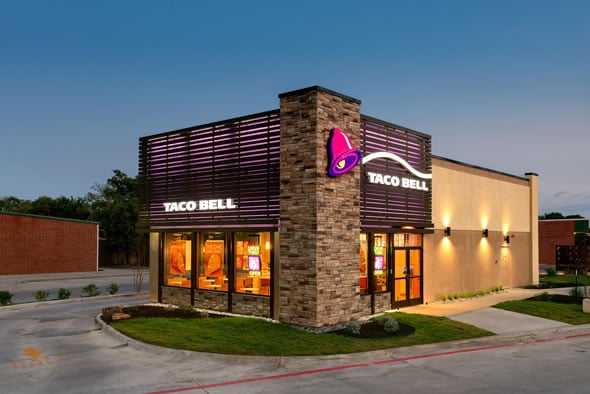In the emerging world of sustainable institutions, fast-food behemoths are not usually found at the cutting edge. Nevertheless, because of the considerable scale of their operations, there are massive inherent opportunities for energy and waste reduction at such companies. Taco Bell Corp., a Yum! Brands company, is actively seeking out those opportunities and implementing them across its more than 6,000 US stores.
In 2008, when grill-to-order machines were introduced across all stores, Taco Bell saw an energy reduction of 15 percent and a water savings of 100 gallons per day, per store. In 2011, a LEED-certified Taco Bell opened in Middletown, Ohio. And since 2012, Taco Bell has reduced energy consumption by 17 percent in all newly constructed stores. Even more recently, a 40-percent energy reduction was achieved at a test store in El Paso, Texas.
“We are in the process of adopting the design elements of this test to our standards to be built into all new company construction going forward,” says manager of sustainability Dave Reinhart.
Meanwhile, on existing stores, increased efficiencies are being achieved by updating lighting, signage, and air-conditioning. Water-wise landscaping is being deployed, reducing irrigation consumption by an average of 40 percent. And on-site facilities are being converted over to water-efficient toilets, urinals, and faucets.
Currently, Taco Bell requires sustainability initiatives to have a return on investment of an average of 25 percent or better. “By being sustainable this way, our goals for energy and water reduction are very aggressive, resulting in benefits to both the environment and our shareholders,” Reinhart says.
This policy, while a good start, has plenty of room for improvement. And although Yum! may not yet be a pioneer on the sustainability front, it is a member of a large body of institutions that is eagerly implementing new, affordable green technologies on a world-changing scale.

